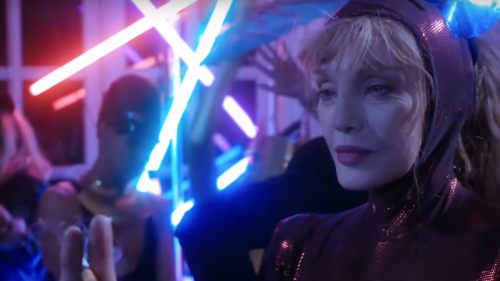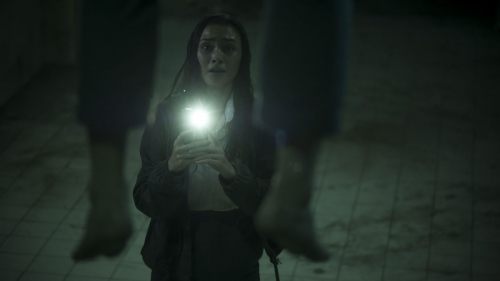Fantasia 2019 Review: THE DIVINE FURY Kicks Arse For The Lord
Many people get angry with God when he doesn’t answer their prayers. But few get as mad as Yong-Hoo (Park Seo-Joon), the central character in Jason Kim’s supernatural action-drama The Divine Fury. After God fails to save his mother in childbirth, then his cop father in an automobile incident, Yong-Hoo turns his back on the Korean Catholic church. He wants nothing more to do with God, priests, and the teachings he considers to be outright lies. Instead, he’s going to become the world’s greatest MMA fighter - but when a stigmata appears on his hand, giving him super-powered exorcism abilities, he’s gonna have to reckon with both his personal faith and literal demons.
Hell of a pitch, that - but The Divine Fury isn’t quite the movie the synopsis makes it out to be. It’s still a good time at the movies, but it’s a much quieter time than you’d think. Despite its story of demons, exorcists, and martial artists, most of The Divine Fury takes the form of a buddy drama between Yong-Hoo and his aging new exorcist pal Father Ahn (Ahn Sung-Ki). This slow-burn surrogate father/son relationship is both the heart of the film and the bulk of it, and it’s actually a pretty good buddy movie. Even for a non-believer like me, their conversations about faith struck a chord, and there are more than a few decent laughs surrounding the pair. It's just...not the movie advertised in the trailer.
As for the supernatural funny-business, it’s a mixed bag, and not even really a mixed-martial-arts bag. Multiple exorcisms dot the movie, and they’re all fine, but each one plays out nearly identically: Father Ahn attempts to exorcise a demon, gets his ass handed to him, then gets rescued at the last minute by Yong-Hoo and his magic hand. The magic hand itself is a fun device, exorcising demons by setting their hosts’ heads alight with (non-destructive) divine fire, but Yong-Hoo’s place in the supernatural underworld is never really explored. Neither is that of the villain, the Dark Bishop, whose development is limited to doing silly effigy rituals in the basement of a nightclub that feels taken straight out of the Video Game Nightclub Design Handbook. The good-versus-evil pop-Catholicism plotline is basically there to support the buddy story and Yong-Hoo’s own crisis of faith and grief.
It’s only in the third act that The Divine Fury really kicks into the “Fury” part of its title. The final act contains nearly all the film’s martial arts, which is odd for a movie that centres on an MMA fighter, and it so makes up for lost time that it feels almost like a different movie. Out of nowhere, we’re thrown into back-to-back fights, one a multi-way brawl and the other a multi-stage final boss battle straight out of Dark Souls. The closing-night audience at Fantasia whooped and cheered at these fights - partially because they contain some great hero moments, and partially because they’re such a long time coming.
Often coming across like a slick, big-budget version of some lost exploitation film, The Divine Fury looks and sounds great. The cinematography - much of it shot at night - uses Seoul’s neon colours to great effect, with all the gloss of a Hollywood blockbuster. Though conceptually standard-fare, the exorcism scenes are well-executed, with visual effects and sound design that support the footage rather than supplant it. Most eye-openingly, the third act hints at a movie far more outlandishly supernatural than the relatively restrained remainder of the film. I’d go see that movie in a heartbeat.
And maybe I’ll get to! Like most blockbusters nowadays, The Divine Fury is an attempt at a franchise-starter, featuring a mid-credits scene that promises a spinoff so silly the whole implication might be tongue-in-cheek. I, for one, hope it isn’t, because a little extra craziness is exactly what this movie needs. The crisis-of-faith story mostly works, the buddy-movie story mostly works, and the supernatural/action material - what the trailer promises, and what most audiences likely come for - works when it actually arrives. As is, the movie’s entertaining enough, but with a touch less restraint and a touch more imagination, we’d really be cooking.



